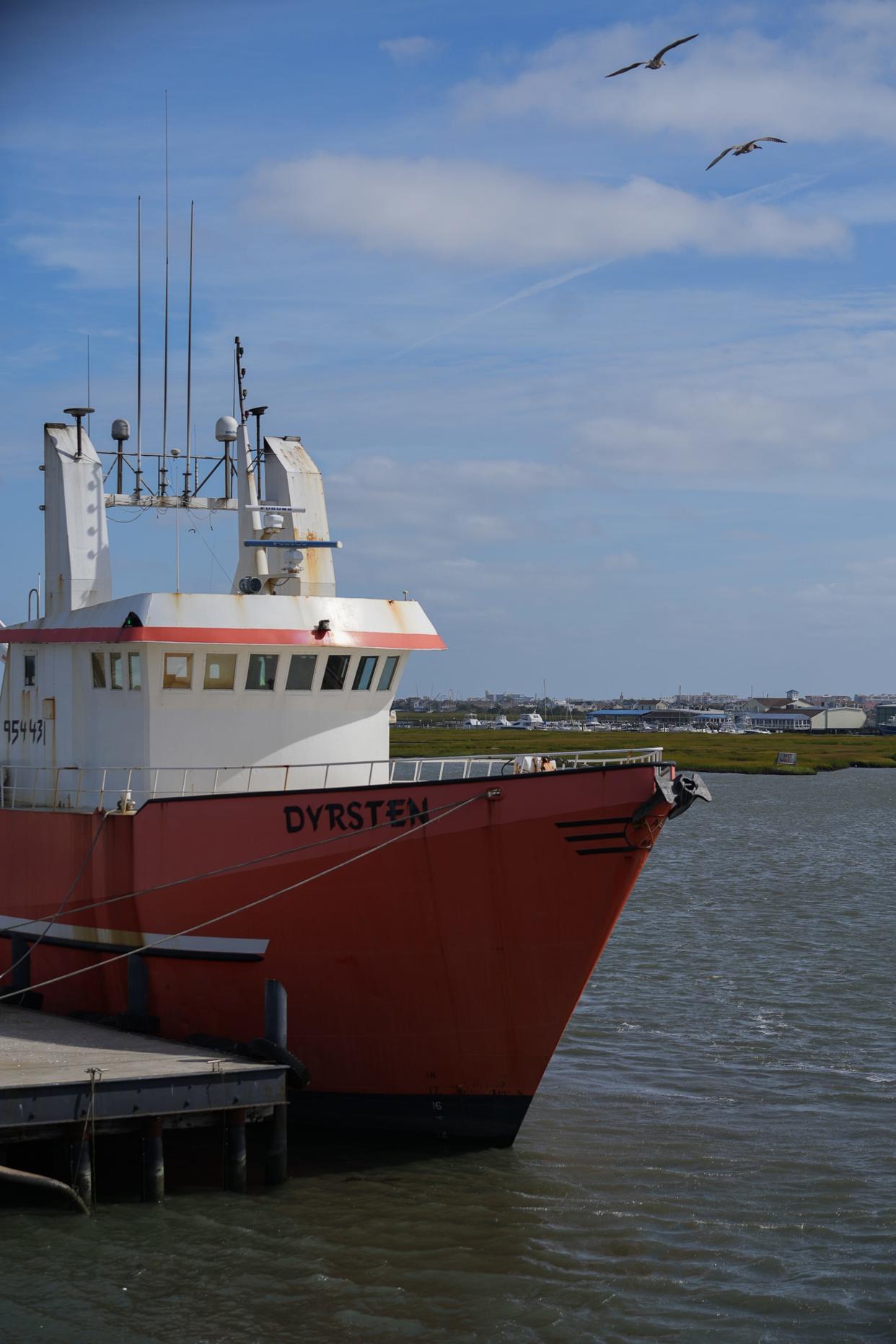'How do we know where the line is?' Supreme Court considers 'chevron' principle in major case

- Oops!Something went wrong.Please try again later.
- Oops!Something went wrong.Please try again later.
- Oops!Something went wrong.Please try again later.
- Oops!Something went wrong.Please try again later.
WASHINGTON − The Supreme Court on Wednesday wrestled over whether to fiddle with − or even overturn − a 40-year-old precedent that has guided how federal agencies protect the environment, workers, consumers and more.
“How do we know where the line is?” Justice Clarence Thomas asked in opening more than three and a half hours of debate over how much deference courts should give federal agencies when the law is unclear.
While the cases before the court on Wednesday were brought by herring fishermen who objected to being forced to pay for federal inspections of their catch, the court's decision could undo decades of rules and procedures involving land use, the stock market, and on-the-job safety.
At least four justices on the nine-member court − Thomas, Samuel Alito, Neil Gorsuch and Brett Kavanaugh − have expressed doubts about the decision at the heart of the fishermen's case.
More: A group of herring fishermen may put a hook in the Biden administration's power
The 1984 decision the court is reconsidering said courts should side with a federal agency’s interpretation of a law as long as it’s a reasonable interpretation of what Congress intended.
Uber legislators?
If that ruling is overturned, Justice Ketanji Brown Jackson said, she’s worried about the courts becoming "uber legislators.”
Justice Elena Kagan said there will always be gaps in legislation because, for example, in fast-moving areas like artificial intelligence, “Congress can hardly see a week in the future with respect to this subject, let alone a year or a decade in the future.”
Roman Martinez, an attorney representing the fishing companies, said judges won’t be making policy, but only determining what Congress wanted.
“The Constitution makes clear that the judicial power, the power to say what the law is, the power to interpret the law, rests with courts, not with agencies,” he said.
But throwing out the current method would displace thousands of past decisions and “create chaos,” argued Solicitor General Elizabeth Prelogar.
She offered ways the court could “clarify” the limits of the court’s deference to agencies “without taking the drastic step of upending decades of settled precedent.”
Justice Brett Kavanaugh decries 'massive change' and instability
Pushing back, Justice Brett Kavanaugh said there’s already instability because agencies can change tack on a regulation every time a new president is elected.
“It’s just massive change,” he said.
In the two related cases before the court, fishing companies objected to having to pay for federal observers required on some boats to prevent overfishing.
The government has stopped that program and refunded the money. But the companies argue the law that allows the National Marine Fisheries Service to require commercial fishing boats to let federal agents collect data about the catch and ensure rules are followed didn’t say anything specifically about charging the fishing industry for the observers.
More: Check on power of federal government or something else? Stakes high in SCOTUS fishing case
The challengers want the Supreme Court to get rid of a landmark 1984 decision, Chevron v. Natural Resources Defense Council, which is one of the most frequently cited Supreme Court decisions.
Ironically, that decision was created in a case that cut back on regulations – and it was applauded by conservatives at the time.
But more recently, conservatives have argued the decision gave too much leeway to agencies and not enough to the courts, which are charged under the Constitution with interpreting laws.
Martinez said that decision was initially popular because of the concern that judges were allowing their policy view to guide decisions. That’s no longer a major concern, he said, in part because there’s less “free-form analysis” by judges and more “text focus."
Dozens of outside associations and others filed supporting briefs in what could be one of the most significant cases the court decides this year.

Business groups, conservative think tanks, Republican members of Congress and the attorneys general from 27 states are siding with the challengers.
Those siding with the federal government include environmental groups, Democratic members of Congress, Democratic attorneys general from 21 states and the District of Columbia, and organizations advocating for public health, consumers and civil rights.
Both the D.C. Circuit Court of Appeals and the Boston-based U.S. Court of Appeals for the First Circuit sided with the federal government, affirming lower court’s decisions.
A decision in the two related cases − Loper Bright Enterprises v. Raimondo and Relentless v. Department of Commerce – is expected by June.
This article originally appeared on USA TODAY: In Herring fishermen supreme court case, justices weigh 'chevron' rule

